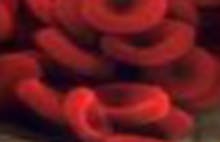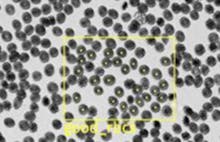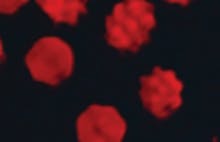Hematology-Oncology
Definition, Pediatrics, and Treating CancersWhat is hematology-oncology?
Hematology is the study of the physiology of blood and the diseases associated with it and oncology is the study of all types of cancer.
Hematology-oncology is the overlap of these two specialist branches of medicine concerned with diagnosing, treating and studying cancers of the blood cells, bone marrow and related tissues. ‘Blood cancers’ include leukemia (excessive abnormal white cells in the blood), lymphoma and myeloma (which can typically include a lump or tumour made up of abnormal white cells).
A number of terms are used in relation to cancer, including ‘neoplastic’ change (which means abnormal new growth) and ‘malignancy’ or malignant, which refers to something that is progressively and increasingly severely harmful - possibly leading to serious illness or death.
The term benign is used to indicate something that is harmless or only minimally harmful. So the term ‘benign neoplasm’ means an abnormal, but relatively harmless lump, whereas a ‘malignant tumour’ may be very harmful if it is able to grow and then spread through the body.
Hematologists and oncologists each undergo specialist training in the other field because of the overlap and close association between the two clinical disciplines. ‘Hematologist-oncologists’ are the doctors from either hematology or oncology who work in this field, treating patients and undertaking study and research to improve care.
What is pediatric hematology-oncology?
Pediatric hematology-oncology is a further specialism of hematology-oncology focused on diagnosing and treating children with hematological cancer.
This is an important medical discipline, as children and teens have unique medical needs. Overall, cancer is more common with older age, but some particularly challenging cancers occur in children, often associated with hematology. Some of the differences in needs are physical as their bodies are still growing. However, many of the medical needs of children and teens are mental and emotional, since they express their concerns and thoughts differently to adults.
Therefore, pediatric hematologist-oncologists are trained to be especially patient and know how to make sure their young patients feel comfortable cooperating with testing and treatment.
When to consult a hematologist-oncologist?
There are various symptoms that can be associated with each type of blood cancer or disorder. They can be specific, such as persistent lumps in the neck or groin over several months (at the site of lymph nodes) or they can be quite vague or non-specific, such as persistent tiredness, headaches or nausea. Most of the time, common and vague symptoms are not a sign of serious illness.
However, if your Primary Care doctor refers you to a hematology-oncology specialist, this may be because they wish to be cautious and suspect the possibility of a blood cancer requiring specialist investigation. Being referred to a hematologist-oncology does not necessarily mean you have cancer and much of the time this involves simply ruling out the possibility of malignancy by careful examination, blood testing, examination of bone marrow and imaging, such as scans.
When you visit a doctor who specializes in hematology-oncology, they will assess you and run a range of tests to figure out the root cause of your symptoms. These results may end up being reassuring, but if the results show that there is the possibility of neoplastic change (cancerous change) in the blood, soft tissues or bones, then the hematologist-oncologist will carry out further more detailed tests and begin compiling a treatment plan.
How long do blood tests take in an oncology office?
The turnaround time for a blood test depends on factors such as the type of test and the location of the test.
A complete blood count (CBC), which measures 19 parameters of the blood, are usually available to your doctor within 24 hours. The CBC is a commonly used and valuable blood test that can give important clues or reassurance about what may be going on. It can show whether the various types of white cell counts are normal, abnormally raised or low, for example.
A more specific blood test giving more detailed information as part of the check for cancer may take longer, particularly if you’re getting a less common blood test, such as for certain immunoglobulins or tumor markers. These tests can take days to a week or more before results are available.
With the recent advent of point-of-care CBC testing, waiting times for CBC can now be much shorter, with results typically available within 10-12 minutes. These results can be a preliminary indication that the blood system is within normal limits or alternatively that something is abnormal and requires explanation or further investigation by your doctor.
How does a blood test help treat cancers?
A blood test is an important aspect of diagnosing cancers. A complete blood count helps the hematology-oncology specialist understand if any types of blood cell are at a depleted or elevated level. For instance, an abnormally high white blood cell count can indicate the possibility of leukemia, which is an abnormally excessive production of certain types of white blood cells.
The CBC and other standard tests, such as liver function tests, also give an indication of whether there is any evidence of other effects on the body, such as anemia or liver damage, that may have been caused by a possible cancer.
Following a complete blood count, a doctor may order further, more specific testing to narrow down the cause of the symptoms and to check for certain possibilities. These might include blood protein testing to identify abnormal proteins caused by a cancer. Another frequent analysis is a tumor marker test, which can highlight the possibility of certain types of malignant tumor.
Often, the outcome of a preliminary round of tests can help the doctor know which further tests to order, to follow up on the initial results. Being able to make a diagnosis promptly can be helpful in deciding on a treatment plan. In general, the sooner a diagnosis can be made, the earlier treatment can be started and the better the outlook for the patient.
Discover Sight's Automated Hematology Analyzer
Disclaimer: The content of this knowledge post intends to provide general information related to topics that are relevant to blood diagnostics and may not be used in relation to the operation of Sight OLO. For detailed information on the diagnostic parameters and specifications of Sight OLO, please refer to the official Operator's Manual.


